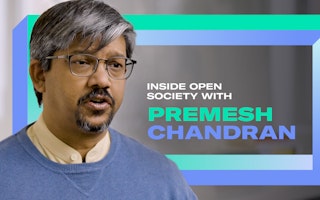Kyrgyzstan: Show Me the Money for Health
By Madina Tokombaeva & Maryam Beishenova
In recent years, Kyrgyzstan has benefited from a significant increase in international funding to improve health care. Since 2009, Kyrgyzstan has received more than $35 million from the Global Fund to Fight AIDS, Tuberculosis and Malaria. In 2011, the German Development Bank pledged an investment of 10.5 million Euros to reduce child mortality and improve health care for pregnant women. And since the Kyrgyz Republic joined the World Bank in 1992, the country has received nearly $1 billion in aid for projects aimed at improving rural infrastructure, including health care systems.
Despite this influx of international funding, many people in Kyrgyzstan are unable to get the lifesaving medicines that they need. And yet, all of the aid grants, from the Global Fund to the World Bank, have included funds specifically for purchasing essential medicines, such as vaccines, antiretroviral medicines to treat people living with HIV, contraceptives, malaria drugs, and leprosy treatment.
If we have the money, then why are thousands of Kyrgyz still waiting for treatment? Unfortunately, the general lack of transparency within government and foreign aid agencies make it difficult to answer that question and identify the barriers that block access to medicines.
That’s why in 2010, three Kyrgyz organizations working on HIV and health issues—the Harm Reduction Network, Partnership Network, and Unity of People Living with HIV—launched a coordinated effort to monitor and analyze the procurement and distribution of medicines purchased with Global Fund grants. Through these efforts, we aimed to increase efficiency and transparency of projects that are implemented by the government’s AIDS center, which was the primary recipient of Global Fund grants.
We set out to track procurement and distribution of antiretroviral drugs and other medicines to treat opportunistic infections, as well as supplies that help reduce HIV infection such as safe injection equipment for people who use drugs. We established a system to analyze whether these processes were transparent, in accordance with Kyrgyz law on public procurement, and in line with Global Fund procedures.
However, we met with resistance from the Ministry of Health, which refused to release copies of tender agreements and other financial documents pertaining to the AIDS center. The government claimed that these records are not available for third parties. So, we joined with other civil society organizations and filed a legal challenge arguing that the government’s actions violated our right to access public information. The Bishkek District Court ruled on January 26, 2012 that the government’s actions were in fact a violation of the right to access information, and ordered the AIDS center to turn over documents pertaining to the purchase of anitretroviral medicines between 2009 and 2011, especially price and quantity lists and distribution reports.
The monitoring and analysis project continues, but this court decision is already a clear victory for transparency and access to information in Kyrgyzstan. Civil society organizations have been energized and we are committed to ensure that government agencies and donors are transparent and efficient.
Madina Tokombaeva is the director of the Harm Reduction Network Kyrgystan.
Maryam Beishenova is program coordinator at the Harm Reduction Network Kyrgyzstan.


